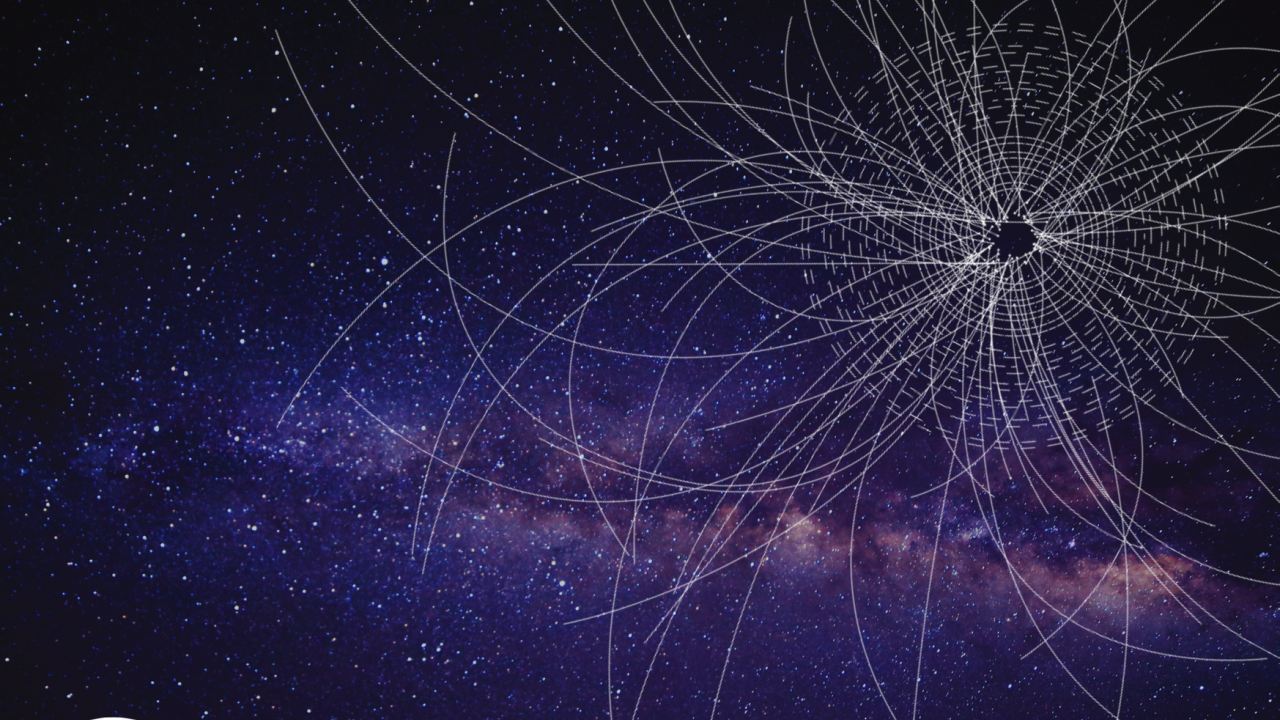
Starting from Wednesday 27 January, ICTP is hosting three days of exciting events focussing on the theme of cosmology, featuring the annual Salam Distinguished Lectures and the celebration of 2019 Dirac Medal winners. All events will be held online and are open to everyone.
The 2021 Salam Distinguished Lectures Series, which will take place on 27, 28 and 29 January at 16:00, will feature David Spergel, director of the Centre for Computational Astrophysics at the Flatiron Institute in New York, USA. Professor Spergel will deliver three lectures on topics ranging from the study of the universe’s initial conditions to the use of machine learning techniques for a modelling of the universe. The three lectures will take place in a virtual format through Zoom webinar platforms. All are welcome to attend: advanced registration is required at this link.
The talks will also be livestreamed on ICTP's YouTube channel.
The lecture series is an annual presentation of talks by renowned, active scientists. The aim is to showcase important research developments as well as provide a visionary forward view. It is supported by the Kuwait Foundation for the Advancement of Sciences.
The schedule of lectures is as follows:
- 27 January, 16:00: “Our Simple Strange Universe”
Observations of the microwave background, the left-over heat from the big bang, the large-scale distribution of galaxies and the properties of distant supernova have led to a remarkable simple model for our universe. With only five parameters (the density of atoms, the density of matter, the age of the universe, the amplitude of fluctuations in the early universe and their scale dependence), this model can fit a host of astronomical observations. We have now determined these basic parameters at the few percent level or better. While simple, our universe is very strange. Atoms make up only 5% of the universe; most of the universe is made of mysterious dark matter and dark energy. We do not understand how the universe began or why there is more matter than anti-matter. Spergel will review our current understanding and look forward to future measurements that can address these big open questions. - 28 January, 16:00: "What the Universe’s Baby Picture Reveals about Fundamental Physics"
Observations of the cosmic microwave background and measurements of the large-scale structure of the universe have revealed the initial fluctuations that grew to form galaxies. Spergel will review measurements showing that these fluctuations were Gaussian random phase and that the basic properties of the universe appear to be described by the Lambda Cold Dark Matter model. He will report recent results from the Atacama Cosmology Telescope that probe not only the initial conditions but also map the integrated matter density, integrated pressure and integrated electron momentum through gravitational lensing and the Sunyaev-Zel’dovich Effects. - 29 January, 16:00: "Determining the Universe’s Initial Conditions”
Can we go beyond measuring the power spectrum of the cosmic microwave background and recover the universe’s initial conditions? Spergel will begin by describing some of the observational programs that will give us a more complete picture of the large-scale structure of the universe: the Rubin Observatory, the Euclid Telescope, DESI, the Roman Space Telescope and the Simons Observatory. He will then ask whether we can forward model the universe from initial conditions to match these data sets. This challenging problem will require the use of machine learning techniques to enable rapid forward modelling of the universe. He will describe recent efforts by his group at the Flatiron Institute in this area.
On Friday 29 January, starting at 13:30, the Dirac Medal Ceremony will precede the third talk of the 2021 Salam Distinguished Lecture Series. The ceremony for the 2019 winners was due to take place in May 2020, but was re-scheduled and will be online due to the restrictions following the Covid-19 outbreak.
More details are available at: http://indico.ictp.it/event/9518/
ICTP awarded its 2019 Dirac Medal and Prize to three physicists whose research has made a profound impact on modern cosmology. Viatcheslav Mukhanov (Ludwig Maximilian University of Munich), Alexei Starobinsky (Landau Institute for Theoretical Physics) and Rashid Sunyaev (Max Planck Institute for Astrophysics, and Space Research Institute, Moscow) shared the prize for “their outstanding contributions to the physics of the Cosmic Microwave Background (CMB) with experimentally tested implications that have helped to transform cosmology into a precision scientific discipline by combining microscopic physics with the large-scale structure of the Universe.” All three winners have made important contributions to the understanding of the early universe in the context of inflationary cosmology.
More information on the three winners’ field of research can be found here.
First awarded in 1985, ICTP's Dirac Medal is given in honour of P.A.M. Dirac, one of the greatest physicists of the 20th century and a staunch friend of the Centre. It is awarded every year on Dirac's birthday, 8 August, to scientists who have made significant contributions to theoretical physics. For more details about the prize and a list of past winners, visit this page.
At the beginning of the Salam Distinguished Lecture on 29 January, the family of ICTP founder and Nobel Laureate Abdus Salam will reveal the winners of the 2021 Spirit of Abdus Salam Award. Announced annually on 29 January—Abdus Salam’s birthday—the award recognizes those who, like Salam himself, have worked tirelessly to promote the development of science and technology in disadvantaged parts of the world. An award ceremony will take place on a later date yet to be announced.
















